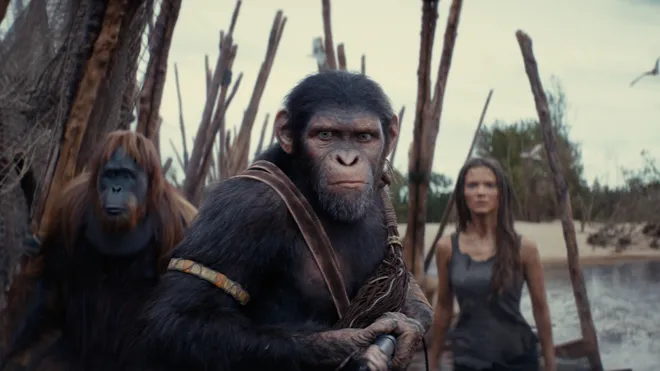“Kingdom of the Planet of the Apes” subtly references the original 1968 film, delivering a brilliant easter egg that defies typical blockbuster clichés. In a refreshing twist, the film’s characters dismiss the significance of the nod, urging audiences to focus on the story itself.
The movie cleverly pays homage to the iconic twist ending of the 1968 classic, where Charlton Heston’s character discovers the truth about Earth’s post-apocalyptic state. Similarly, the less acclaimed 2001 remake echoes this revelation with an ape version of the Lincoln Monument, despite its narrative inconsistencies.
Director Wes Ball expertly incorporates callbacks throughout “Kingdom of the Planet of the Apes.” The standout moment occurs when the character Raka christens a human woman as “Nova,” a direct reference to Linda Harrison’s character in the original film. This nod triggers a sense of familiarity among viewers, only to subvert expectations with Raka’s subsequent dismissive attitude towards the reference.

Through this humorous exchange, the film challenges the audience’s obsession with easter eggs and references. Screenwriter Josh Friedman infuses the moment with deeper thematic significance, highlighting the characters’ tendency to reinterpret history to suit their narratives. Raka’s casual explanation of the name “Nova” as a relic of “Caesar’s time” underscores the subjective nature of storytelling and memory.
In a genre saturated with contrived callbacks, “Kingdom of the Planet of the Apes” stands out for its self-awareness and narrative integrity. By urging audiences to focus on the present narrative rather than hunting for references, the film offers a refreshing take on the typical blockbuster formula.
“Kingdom of the Planet of the Apes” is a testament to the power of storytelling when freed from the constraints of nostalgia. Embrace the film’s brilliance and experience it in theaters now.
Credit: Den of Geek





